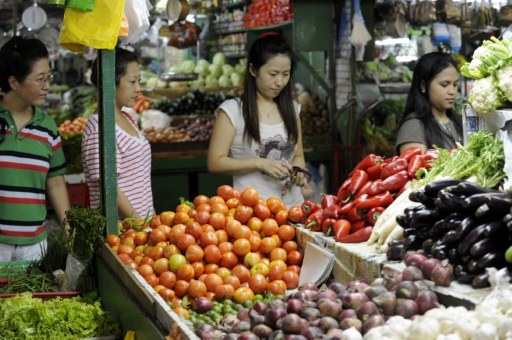MANILA -The Cabinet-level Inter-Agency Committee on Inflation and Market Outlook (IAC-IMO) has put on the table the possible further extension of temporarily lowered tariffs on agricultural products as part of efforts to push down inflation toward acceptable levels.
Finance Secretary Benjamin Diokno said in a briefing that the IAC-IMO is considering whether to recommend to President Marcos the extension beyond Dec. 31, 2023 of the provisions of Executive Order No. 10.
Signed on Dec. 29, 2022, EO 10 extends by one year the temporary lower tariffs on agricultural products to the end of 2023. Meanwhile, the lower tariff on coal is extended beyond 2023, subject to a review every six months.
“The IAC-IMO, which has committees that are respectively focused on food inflation and nonfood inflation, is discussing this,” Diokno said, referring in particular to tariffs on pork, corn and rice.
The IAC-EMO comprises the secretary of the National Economic and Development Authority as chair; finance secretary as cochair; budget secretary as vice chair; and the secretaries of agriculture, energy, science and technology, trade, and interior as members.
So far this year, from January to August, overall inflation in the Philippines averaged at 6.6 percent. This is far above the range of 2 percent to 4 percent, which is the full-year target average of the Bangko Sentral ng Pilipinas.
READ: Philippine inflation rose to 5.3% in August
EO 10 itself extends the effective period for the provisions of EO No. 171 that was signed on May 21, 2022. In turn, EO 171 extended the effectiveness of EOs No. 134 and 135—both signed on May 15, 2021—which respectively lowered temporarily the tariffs on imported pork and rice.
Based on EO 171, tariffs on pork were brought down to 15 percent to 25 percent instead of 30 percent to 40 percent.
Pending petition
Also, tariffs on corn were slashed to 5 percent from 35 percent. Tariffs on rice were brought down to 35 percent from 40 percent to 50 percent.
While the temporarily lowered tariffs on rice are in effect until Dec. 31, there is a pending petition with the Tariff Commission for a further decrease—albeit also temporary—to zero or no more than 10 percent.
READ: Keep lower tariffs on key agri products, coal, gov’t urged
Regarding tariffs on agricultural products, allied agri-business groups on Tuesday appealed to Mr. Marcos to reject a new executive order, which they said was “being hatched by Secretaries Diokno and Balisacan that will lower tariffs on rice, pork, corn and chicken.”
“It is very clear to us that Secretaries Diokno and Balisacan are publicly contradicting the President with their continued insistence of reducing tariffs and encouraging more imports,” said Rosendo So, chair of the Samahang Industriya ng Agrikultura (Sinag).
“They are not serving under the pleasure of the President, but of the importers and smugglers,” So said in a statement. “Eliminating tariffs is simply legalizing smuggling.”
In the fight against low tariffs on imported agricultural products, Sinag is joined by groups such as Federation of Free Farmers; Kilusang Magbubukid ng Pilipinas; Agricultural Sector Alliance of the Philippines; Aniban ng mga Manggagawa sa Agrikultura and United Broiler Raisers Association. INQ
